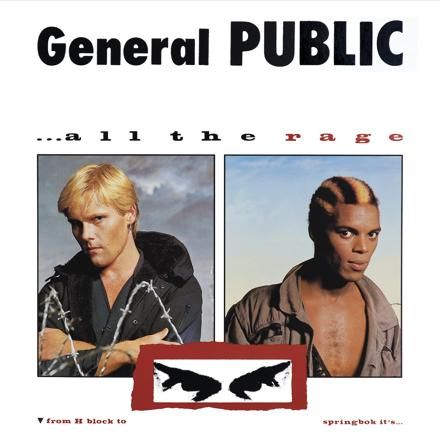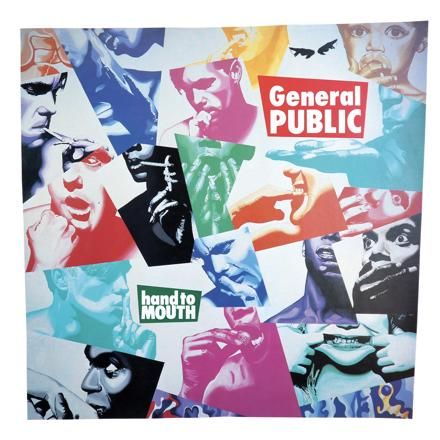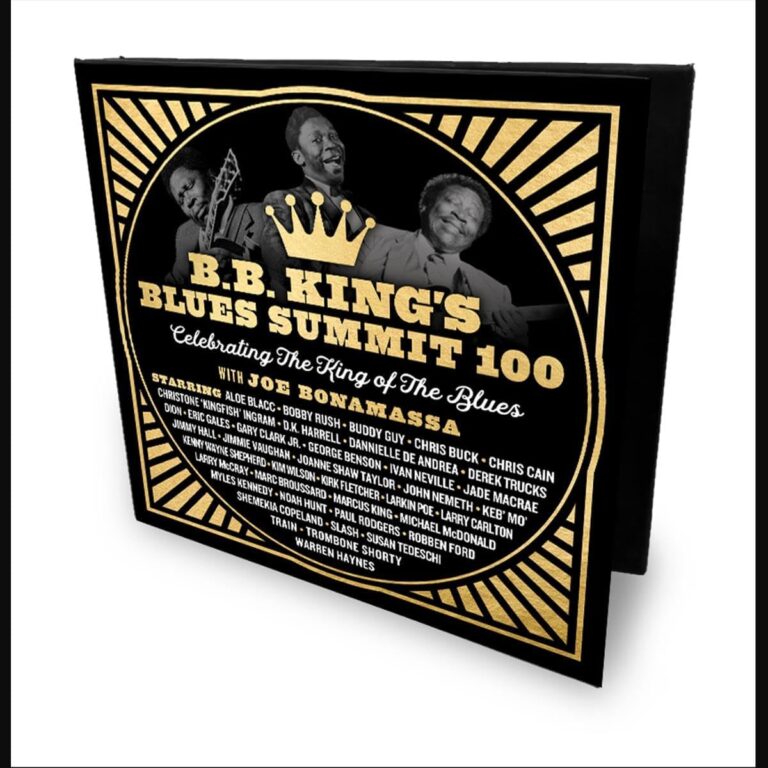Formed in 1983 by vocalists Dave Wakeling and Ranking Roger of The Beat, General PUBLIC were a short-lived new wave band who, despite their relatively brief tenure (1983 – 1987), went through a remarkable array of musicians. Notable for featuring members of Dexy’s Midnight Runners, The Clash and The Specials, General PUBLIC’s initial run saw two albums produced – All The Rage (in 1984), and Hand to Mouth (in 1986) – with a third released during a brief reunion in 1994. With Dave and Ranking the only two members to stay the course, the band’s return failed to garner much success, and General PUBLIC disappeared from view once more. However, while “Ranking” Roger Charley tragically passed away in 2019, Dave Wakeling has kept the General PUBLIC name alive, regularly airing tracks when touring with The English Beat and even reviving the name for The Lost 80s US tour later this year.
Timed to coincide with the band’s live dates, BMG have brought All the Rage and Hand to Mouth back into print on black vinyl. These are bare bones re-releases, with no fresh liner notes or tracks, but they’re pressed on surprisingly crackle-free 140g platters, and the original artwork has been faithfully maintained.

All The Rage (1984)
With its all-star line-up, All the Rage really should have been a smash, given that the band drew together members of The Clash, The Specials and Dexy’s Midnight Runners. Strangely, while it did prove immensely popular in the US, the British public seemed strangely immune to its charms, the band’s breezy, heavily synth-focused sound failing to land with the force that it should, which is strange, considering it stands shoulder-to-shoulder with the best the period had to offer.
Side A
The first side opens with the fast-paced and none-more-80s Hot You’re Cool, which takes bubbly synth, breathy vocals and, just in case you’re in any doubt as to the era, sax. However, keeping things grounded, angular stabs of guitar (courtesy of Mick Jones) scar the surface, and the result is a strong opener that sits comfortably alongside the likes of Duran Duran, Let’s Dance-era Bowie and early Depeche Mode. Next up, the hugely successful second single, Tenderness, is a bouncy, melodic number. Significantly bolstered by its inclusion in various John Hughes from the period, including Sixteen Candles and Weird Science, which helped keep it buoyant in the charts, its popularity was such that it returned in 1995, on the soundtrack for Clueless, and, even more recently, in 2014 for Devil’s Due, highlighting the band’s ability to pen a memorable tune. Things initially take a darker turn on Anxious, before ska elements emerge, the track sounding for all the world like a cross between The Clash’s Sandinista experiments and a forerunner to No Doubt’s effervescent sound, which appeared some twenty years later. Less successful is Never You Done That, which is a breezy number so rooted in the early 80s it feels like a time capsule. That said, the band’s melodic gifts ensure the damn thing will lodge itself in your brain, no matter how much you try to scrub it out. The first side concludes with Burning Bright a heavier track that, confusingly, is one of the pieces not to (officially) feature guitars from Mick Jones, despite the hulking great power chords that set things in motion. If you were looking for one track to showcase the enduring appeal of General PUBLIC, Burning Bright, with its stinging guitar and soaring chorus, would surely be a strong contender.
Side B
Kicking off side B, the acapella introduction to As a Matter of Fact paves the way for a funky number, although its slightly let down by the heavily synthesised drums, which recall the likes of Yazoo and Men Without Hats. Fortunately, the ska-pop of Are You Leading Me On? (complete with the vocal yips so popular in the day), is a brilliantly bouncy track that cannot fail to raise a smile. Elements of early Depeche Mode float through the mix in the fast-paced Day-To-Day, and I dare anyone to listen and not find themselves tapping something. The nimble Where’s The Line? meanwhile, ploughs a similar furrow to the David Bowie of the period, although the guitar frequently finds itself overpowered by the synth. It leaves General Public, a surprisingly political finale, to round things out, the depressingly prescient line “you could act so badly, people never notice” as pertinent now as it was in 1984. As befits the stinging lyric, General Public is also one of the best tracks on the album, the dark subject matter encouraging the band to indulge a tougher sound, and it ends the record on a high.
Although All The Rage is incontrovertibly a product of its time in terms of production, the strength of the song writing ensures that it’s still a hugely enjoyable album. In many ways, the last track notwithstanding, the music evokes the hedonism of the early 80s, a period overshadowed by the Cold War, and yet strangely innocent. Thus, while a certain sense of nostalgia may explain the album’s charms, it is the remarkable pop nous that shines most brightly on All The Rage and, for those with a taste for New Wave, this is something of an underrated gem that deserves to be reappraised. 8/10

Hand To Mouth (1986)
General PUBLIC returned to action surprisingly swiftly, unveiling Hand To Mouth a scant year-and-a-half after All The Rage. With Mick Jones having left the band before All The Rage was even released, by the time General PUBLIC had regrouped for their sophomore effort, guitarist Kevin White and drummer Andy “Stoker” Growcott had also departed the fold (to be replaced by Gianni Minardi and Mario Minardi respectively), resulting in a significantly greater focus on Mickey Billingham’s keys. Unfortunately, both Gianni and Mario seem too overwhelmed by their new colleagues to really stamp their authority on the album, with synths dominating pretty much throughout the album. Where previously the juxtaposition between the band’s pop and rock instincts had proved one of their biggest strengths, here the pop side wins out, impacting not only the music, but also the vocals, which all too often reply on the simple repetition of the title in place of a chorus.
Side A
Nonetheless, it appears to be business as usual as Hand To Mouth opens with Come Again, a larger-than-life track that, unfortunately, foreshadows the album’s biggest failing – an over-polished production that front loads the synths, all but neutering the guitars in the process. This is even more apparent on Faults And All, a track that evaporates into the breeze pretty much the second it ends. A better track is Forward As One, which effectively harks back to the ska pulse of All The Rage, brightening the first side and possessed of a seriously catchy melody. Next up, the horn-soaked Murder feels like the distant pop cousin of early Cure, but while the melody is catchy, the title really doesn’t bear the number of repetitions the band put it through, and it’s with no small amount of relief that it comes to an end. Fortunately, Cheque In the Post is a livelier number and, like Forward As One, it offers a glimpse of the band’s former attitude.
Side B
Opening the second side, the band hit the ground running with the stabbing guitars and huge drums of Too Much of Nothing, a decent song that outstays its welcome. Further momentum is lost on the throwaway Loving Without the Fun, which sees the lead synth patches overused to some considerable extent. A better track, In Conversation has a darker feel and a great vocal, edging into similar sonic territory occupied by Peter Gabriel that same year, although the keyboard threatens to overwhelm when it takes the lead. Again, however, the track wraps up with the title on repeat, robbing any goodwill that may have been built up. Next up, Never All There is a particularly weak track, far too whimsical to be taken seriously. It leaves Cry On Your Own Shoulder to see the album out, the brisk rhythm guitar and funky bass keeping things moving for a pacier track that makes you wish more of the album had adopted this approach.
A far weaker album than its predecessor, Hand To Mouth has a handful of strong songs and far too much filler. There are moments, such as on Cheque In The Post, where the band hit the heights of All The Rage, but all too often they default to a template which, despite the snappy rhythms, see the song title simply repeated over a bedrock of increasingly lightweight synth. That said, the album passes quickly and it’s enjoyable while it’s on. It simply lacks the flair of its illustrious predecessor and, while fans of the band and completists will surely be pleased to own both records, it’s fair to say that, of the two, All The Rage is all you really need. 6/10



